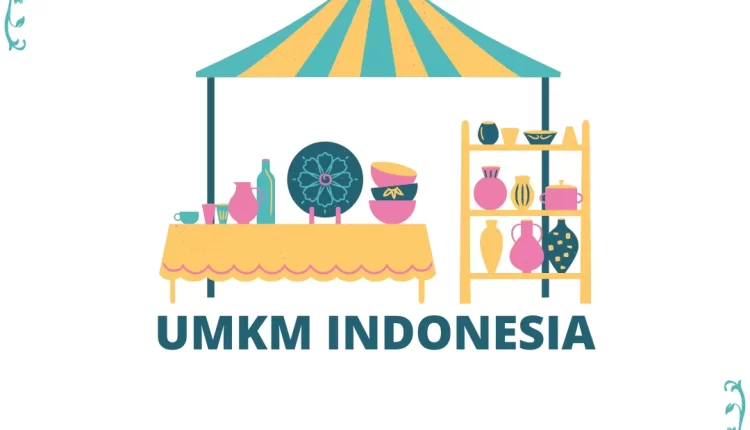MSME Debt Write-off in President Prabowo Era Flooded with Appreciation
By: Mohamad Jasin)*
During President Prabowo’s leadership, a number of pro-MSME (Micro, Small, and Medium Enterprises) policies have been positively highlighted among business people. One of the policies that has received much appreciation is the cancellation of debt for MSMEs affected by various economic conditions, including the impact of the pandemic and the global crisis. This step is considered a form of real attention to the sector that is the backbone of the Indonesian economy.
Since his inauguration, President Prabowo has prioritized the MSME sector as part of the national economic development priorities. In his vision, MSMEs are not only seen as contributors to employment, but also as pillars of economic resilience that must be empowered. The elimination of MSME debt is one concrete form of this commitment.
INDEF Program Director, Eisha Maghfiruha said the positive impact of the program to write off and write off bad debts for MSMEs in the agriculture, plantation, livestock, fisheries, and marine sectors during the era of President Prabowo Subianto’s administration. This policy also aims to increase financial inclusion, where debtors trapped in bad debts can get the opportunity to access new financing and restart their businesses.
This policy brings new hope to many MSMEs who have been depressed due to mounting debt. One of them is business actors in the agricultural and plantation sectors who often face serious obstacles in obtaining capital, due to recurring economic difficulties. Debt relief provides an opportunity to innovate again, improve businesses, and start over without being tied down by a past full of financial difficulties. This is a real step that can encourage the MSME sector to be more productive and competitive.
For many MSMEs, this policy is a breath of fresh air that comes at the right time. The various challenges faced by this sector, such as difficulty in accessing capital, rising production costs, and restrictions imposed due to the pandemic, have caused many small business actors to slump.
Not only does it help ease the financial burden, this policy also has a positive impact on the psychology of MSME actors. Business actors feel more appreciated and cared for by the government, which has often been felt to be less than optimal in supporting this sector.
Member of the Regional Representative Council (DPD) Committee IV NTB, Evi Apita Maya said when the UMKM debt has not been written off, UMKM actors cannot develop their businesses. However, after this policy, UMKM actors will revive the economy and change their fate for the better.
Of course, this policy brings new hope to many MSMEs who have been depressed due to mounting debt. One of them is business actors in the agricultural and plantation sectors who often face serious obstacles in obtaining capital, due to recurring economic difficulties. Debt relief provides an opportunity to innovate again, improve businesses, and start over without being tied down by a past full of financial difficulties. This is a real step that can encourage the MSME sector to be more productive and competitive.
In addition, the policy of eliminating MSME debt also provides a positive signal to the financial and banking sectors. Financial institutions are also expected to be more flexible in providing loans to MSMEs in the future. With this policy, there is hope that the financial sector will be more open and brave in providing support to MSMEs, which are often considered high risk.
In an effort to accelerate the elimination of bad debts, the Minister of SMEs, Maman Abdurrahman said that he had mapped out a number of steps to be taken, consisting of data collection on business actors in the plantation, agriculture, fisheries, maritime and fashion and culinary industries, coordination with Himbara banks, public service agencies (BLU), Bank Indonesia, and the Financial Services Authority (OJK).
Data collection of business actors in these sectors is a very important first step. Before taking further action, the government needs to ensure that the data used is accurate and reliable. With the right data, the policies implemented can be more focused on those that really need intervention. Sectors such as agriculture, plantations, fisheries, and maritime have a vital role in the Indonesian economy, considering that most MSMEs are in this sector.
Responses to the debt cancellation policy also came from various groups in society. A number of MSME organizations and associations in Indonesia gave high appreciation to the government for the steps that were considered very good. Micro, small, and medium business actors feel more optimistic about continuing their businesses after getting the opportunity to start again without the burden of debt. Most consider this policy as a progressive step that can push the MSME sector towards a brighter future.
The policy of eliminating MSME debt in the era of President Prabowo received much appreciation because it was considered a very appropriate and urgent step for the most vulnerable sector in Indonesia. This is proof of the government’s commitment to paying attention to the welfare of micro and small business actors, which are an integral part of the national economy. This appreciation shows new hope that Indonesian MSMEs can rise stronger and be more competitive in the global economy.
)*The author is a Macroeconomic Analyst – Nusantara Economic Research Institute
